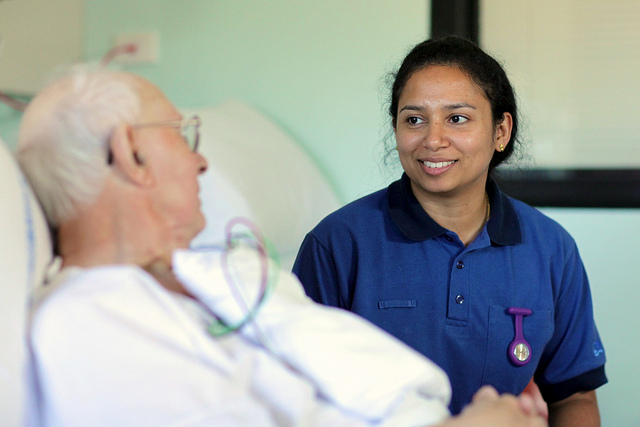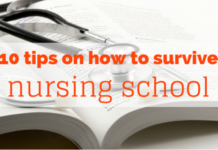I’ve been through career changes that took me from music to computers to writing. I finally decided to spend the last phase of my working life in a field that brought comfort and support to others, as those moments in my other jobs had brought me the most satisfaction. That’s why I explored nursing.
But I’d learned from my other jobs that perception is not always reality. Before I committed myself completely, I did my homework, as you should do as well. Follow these tips to make a successful career change to nursing.
Be Realistic
Every career has its dark side and nursing’s may be darker than most. You watch many patients get well under your care while others die and must learn to avoid taking either event personally. You deal with those who appreciate everything you do and those who don’t appreciate anything. You learn to handle bodily fluids of all sorts with aplomb.
While humility is good, there are moments of joy that you must learn to appreciate. Some will cite the miracle of birth, some cite supporting successful surgery, and some cite seeing critically ill patients recover. You’ll learn which happy endings excite you the most and can direct your career in that direction.
Be Flexible
Much that you’ve heard about nursing shifts is true. After all, hospitals never close. You’ll often work 12 hours straight. Holidays and weekends off are for other people. Night shifts are just as likely as day shifts. Weather emergencies are no excuse for not reporting. You’ll feel like you have to organize life around work to a greater degree than others.
This isn’t all bad. Paid overtime helps when money is tight. You’ll also be able to exchange shifts when necessary, as long as you return the favor. If you need more regular hours, you can always trade the higher pay hospital work affords for the more conventional hours of a private practice.
Never Stop Learning
Nurses can’t survive by compassion alone. You need to be smart, comfortable with numbers, able to think on your feet, and willing to make your education a lifelong process.
To become an RN, or registered nurse, you generally need an associate’s or (preferably) bachelors’ degree in nursing and licensed nursing certification. Generally, after a year or two of nursing experience, areas of specialization become available. They often need more education and certification. A good example of this would be an adult-geriatric nurse practitioner which requires a Master’s of Science in Nursing.
For example, you can learn to care for the elderly. The “graying” American population offers opportunities for nurses interested in guiding patients through the aging process. Becoming such a guide requires an MS degree in nursing (MSN) that focuses on helping adults stay active as they grow from youth to middle age to their eighties and nineties. After earning this degree, you’ll need to pass a certification exam to begin this new stage of your career.
Build a Network
Nurses who are already in the field often receive advice to “be a mentor,” “be a sponge,” and “encourage others to enter the profession.” In other words, find more knowledgeable nurses from whom you can learn, be eager to share what you’ve learned with others, and tell prospective nurses about the field.
Consider the last piece of advice an open invitation to collect information. Use nurses you know to gather information on the field before you start training. Expand your nursing contacts through social networks such as LinkedIn. The more you learn from people who work in the real world, the more realistic your picture of nursing will be.
Make a Plan
Nursing has so many options. Once you’ve survived the first couple of years, it’s important to know which options suit your temperament. You may prefer the hospital setting because of its frenetic pace and higher pay, or you may prefer the more conventional hours of a physician’s office. It’s also possible to build a practice of your own as a licensed nurse practitioner, delivering medical services to those who lack access to a doctor.
Know your options, know yourself, and you’ll be able to make a smart decision.
Do you have tips or a very inspirational Nursing story that you’d like to share? Contact us today and let your voice be heard!



















